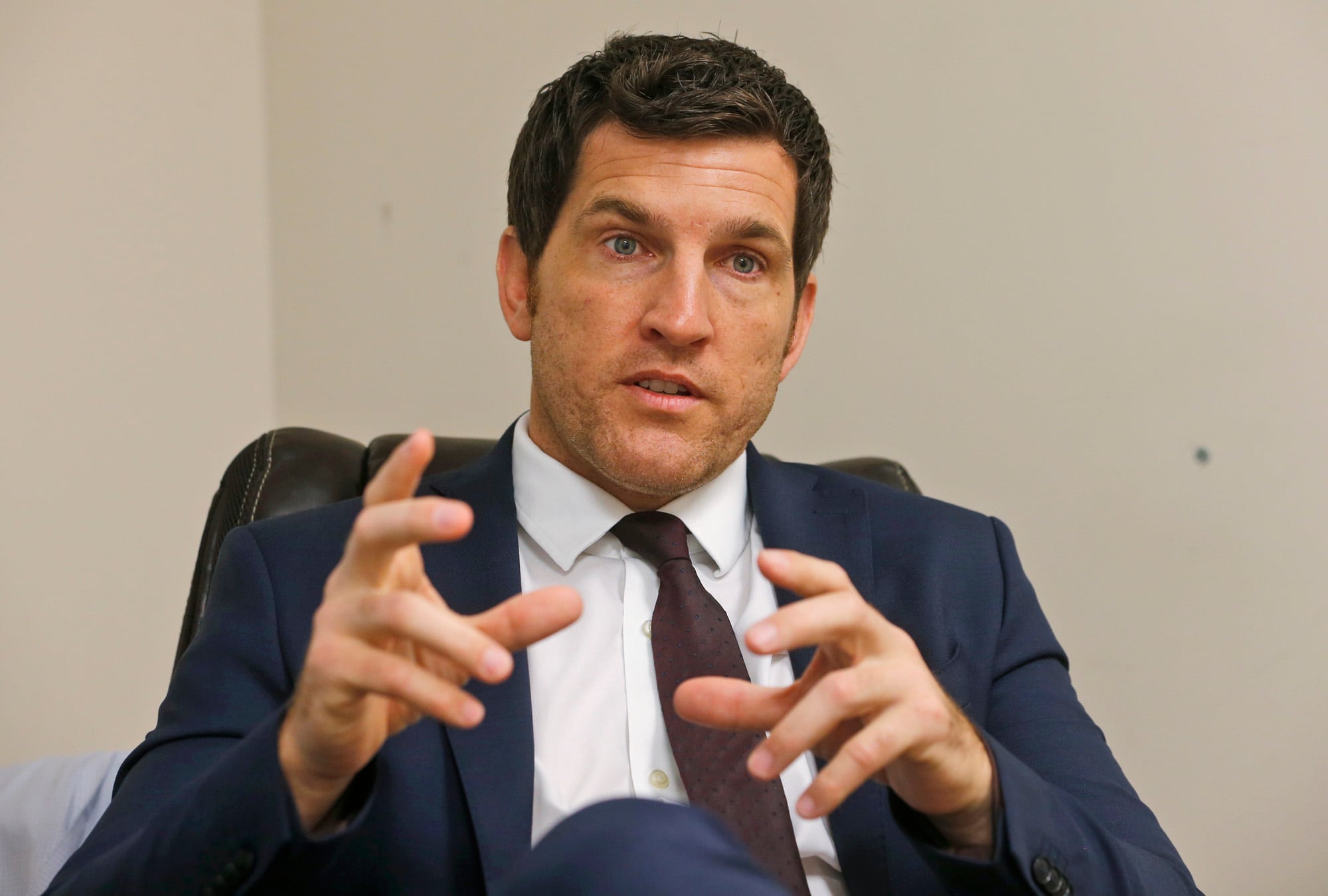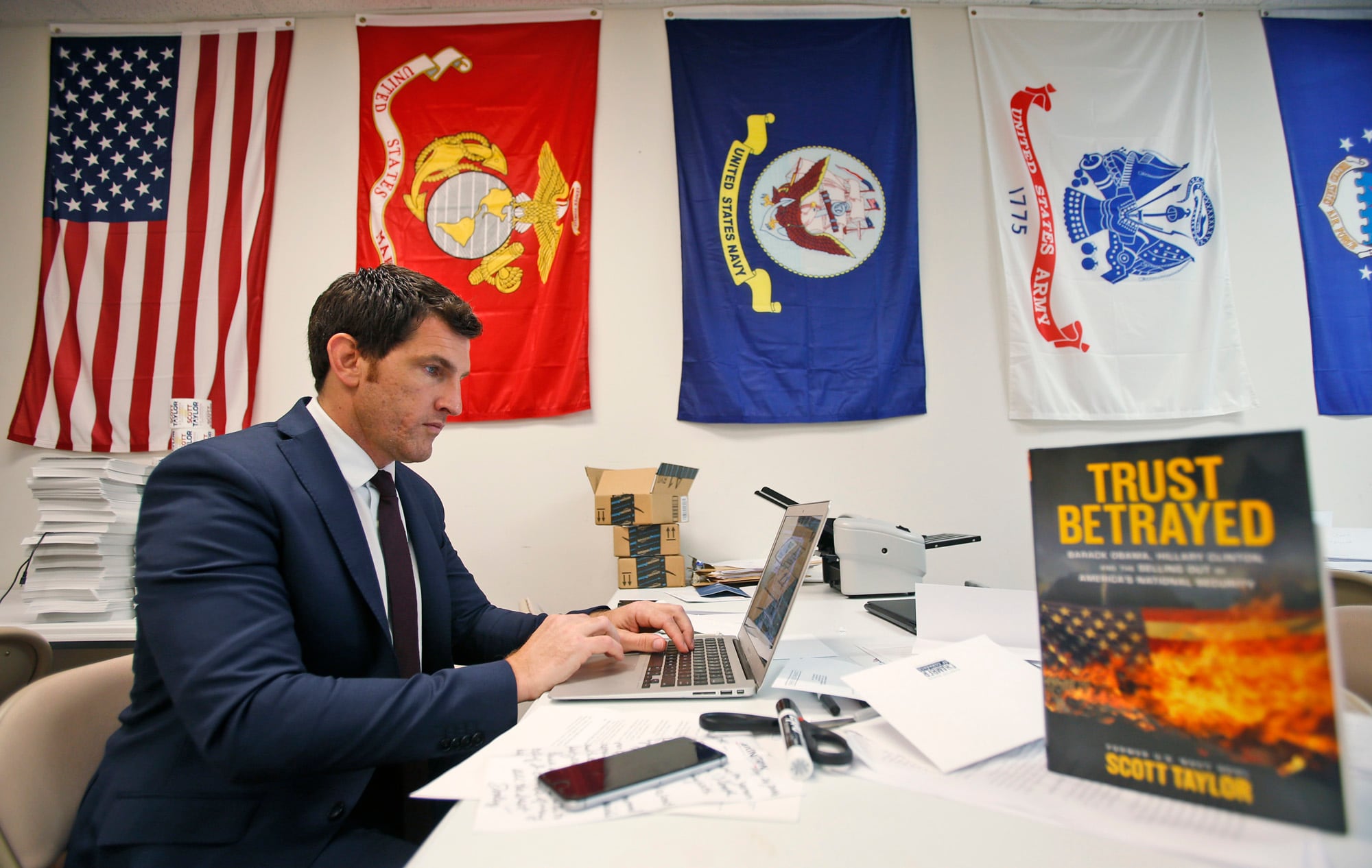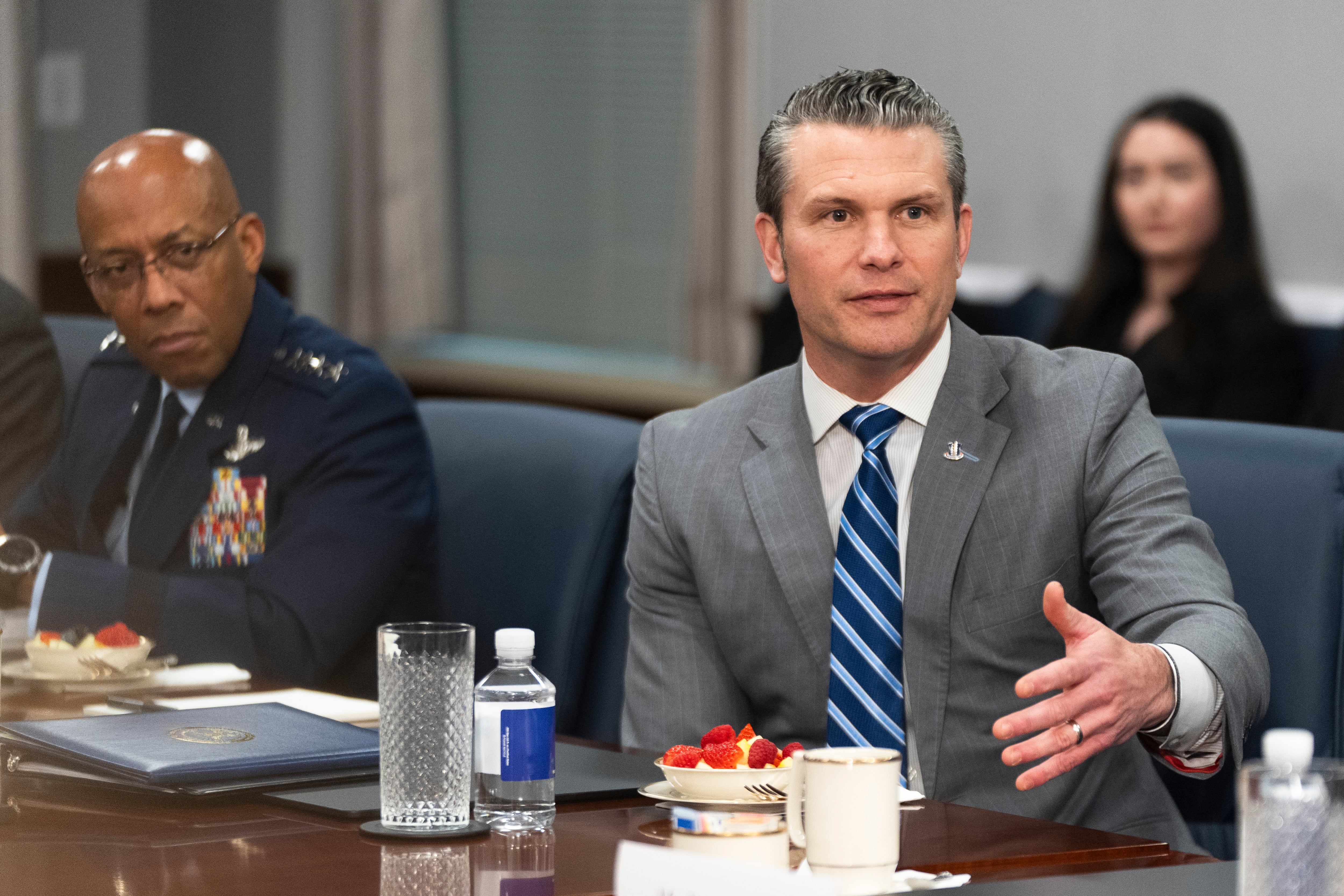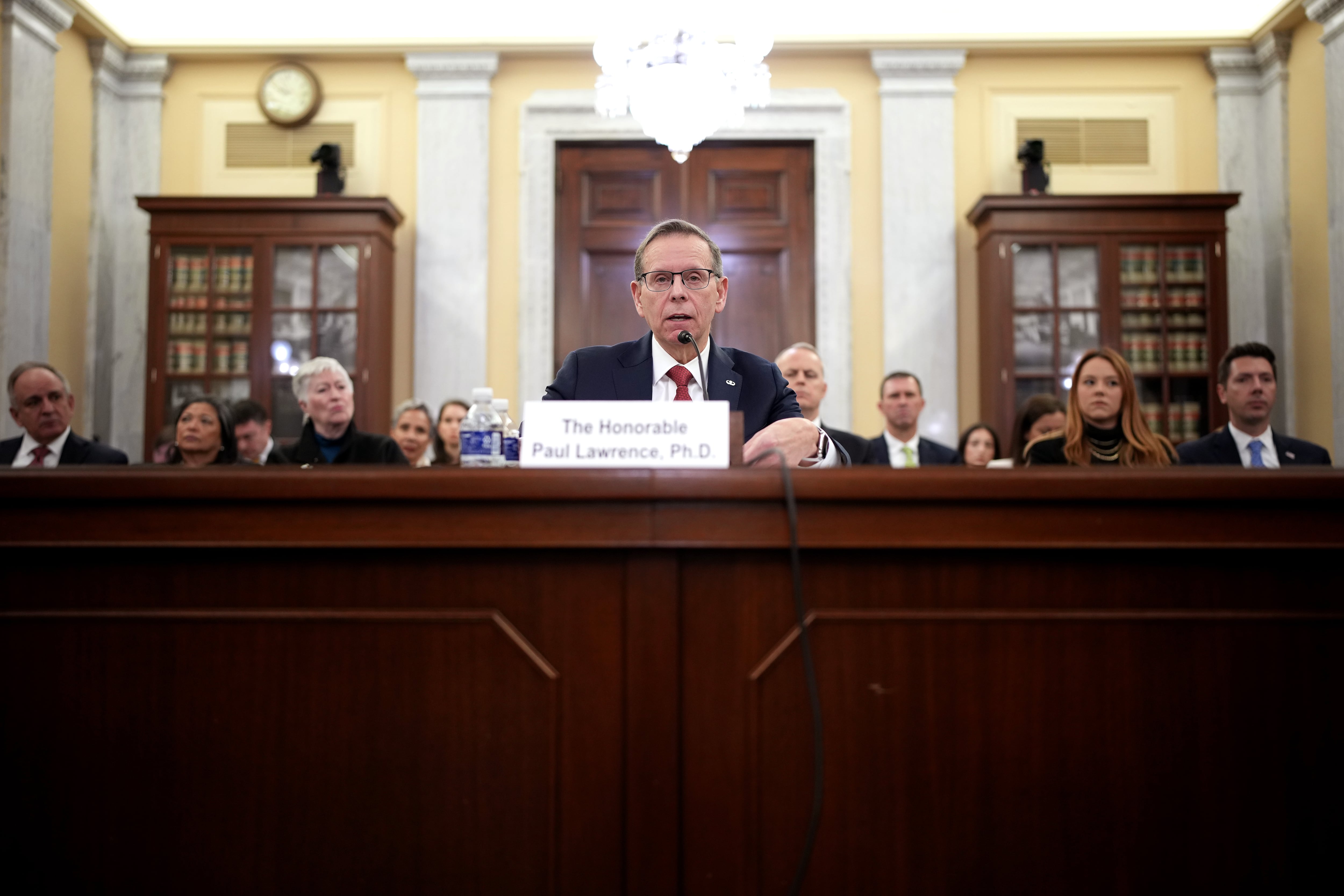VIRGINIA BEACH, Va. — As a Navy SEAL, Scott Taylor helped capture bomb makers in Iraq's seedy neighborhoods in Ramadi.
He protected American convoys with sniper missions. And on his last stint in Iraq, he fell 20 feet through the floor of a dark, vacant building while searching for insurgents.
Taylor suffered broken ribs, a concussion and a collapsed lung. More than a decade later, he's a freshman congressman who has gotten a seat on the powerful House Appropriations Committee.
Taylor, 37, is among a cadre of former SEALs who've recently thrust themselves into public view through books, media appearances and political campaigns.
In 2016 alone, at least four former SEALs campaigned for major office. Eric Greitens became Missouri's new Republican governor and Montana Congressman Ryan Zinke was elected to his second term and is now President Donald Trump's pick for Interior Secretary.
Kristin Beck, a transgender former SEAL from Maryland, lost to House Minority Whip Steny Hoyer in the Democratic primary.
After leaving the military in 2005, Taylor became a real estate broker, earned an international relations degree from Harvard University's Extension School and served in the Virginia House of Delegates.
"If you look at Scott, he's a blend of a Navy SEAL and entrepreneur," said Glenn Davis, a fellow Republican who served with Taylor in the Virginia Statehouse. "It's not surprising he walked in the door, set his sights on Appropriations and executed a plan."

In this Oct. 7, 2016, photo, Virginia's 2nd District Congressman Scott Taylor speaks during an interview in his campaign office in Virginia Beach, Va. Taylor is among a cadre of former Navy SEALs who've recently ascended to major elected office.
Photo Credit: Steve Helber/AP
Taylor, a Republican, has become increasingly political since leaving the SEALs, drawing criticism from some in the military who say he's breached the special operations force's traditional code of "quiet professionalism."
For instance, Taylor helped produce a web video in 2012 that accused former President Barack Obama of taking too much credit for the SEALs' successful raid on Osama bin Laden's compound. He also wrote the 2015 book "Trust Betrayed: Barack Obama, Hillary Clinton, and the Selling Out of America's National Security."
A U.S. Navy lieutenant cites Taylor, among others, in his 2015 master's thesis at the Naval Postgraduate School, "Navy SEALs gone wild: publicity, fame, and the loss of the quiet professional."
Lt. Forrest Crowell wrote that Taylor is among "the core of what is becoming a special interest pressure group that uses the credibility of special operations to push partisan politics."
Taylor says politicians exploited the military — not him.
"I got involved in that specifically because I felt like our leaders were releasing national security secrets ... to gain credit politically and get re-elected," Taylor said.
"He's entitled to his opinion and I respect it of course," Taylor said of the thesis. "But there isn't a SEAL who leaves the military who doesn't put it on his resume."
Taylor is also among a growing number of post-9/11 veterans in Congress, according to Veterans Campaign, a nonprofit that supports vets entering politics. Few lawmakers have as much at stake in Trump's promise to invest deeply in the military.
He represents a large swath of Hampton Roads, which is home to the world's largest Navy base and various defense contractors, including shipyards that build the nation's aircraft carriers. In recent years, the local economy has suffered under budget caps, commonly known as sequestration, that limit defense spending.
"For things like shipping, some of the companies aren't able to plan for a long time," Taylor said. "They have to let some of the workforce go. And some of those people leave because they've got to feed their families."
To free up more defense funds, Taylor said he and other Republicans want to reduce spending on some government assistance, such as food stamps, and potentially cut outdated military programs.
Looking more broadly, Taylor said he also supports raising the minimum age for Social Security benefits for younger generations in order to keep the program solvent.
The Social Security idea doesn't sit well with Reed Ennis, 69, a retired financial director who voted for Taylor. The Eastern Shore resident said current generations are already scraping by on it.
Ennis said he voted for Taylor in part because of his experience in Iraq. And he hopes it dissuades the congressman from supporting future wars, even if they might help the local economy. He also shares Taylor's support of Trump's order to suspend travelers from seven predominantly Muslim nations.
Former SEAL Michael Nicosia first met Taylor in South America, where they trained local militaries fighting the drug war. After he arrived, Taylor quickly learned Spanish and helped translate for the team. He also focused on the local troops' biggest challenges, which included a lack of decent gear.
"He was always asking questions that traditionally a lot of us weren't," Nicosia said.
After leaving the military, Taylor provided security for an American oil company in Yemen. He said that job often required him to negotiate various disputes with armed tribesman.
Washington should be easier, Taylor said, "because there's not AK-47s and Arabic."





